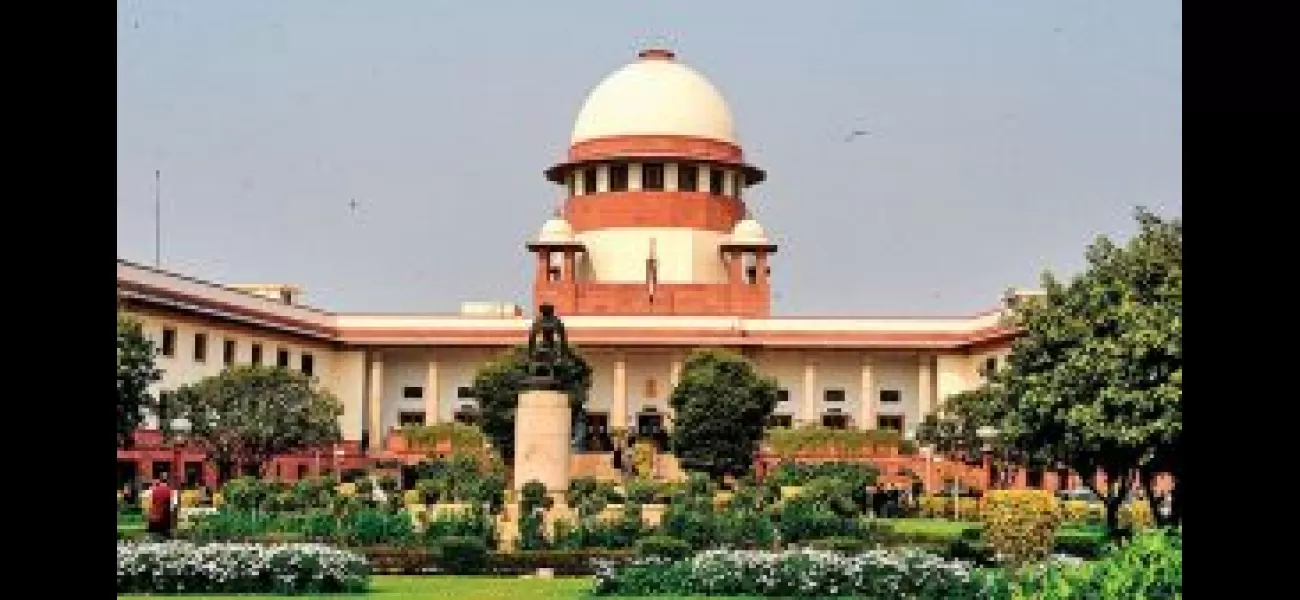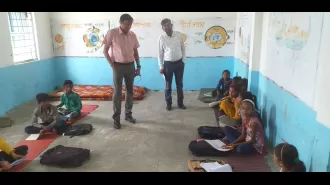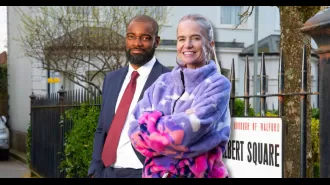Supreme Court to consider cases challenging laws that protect husbands from being prosecuted for raping their wives.
SC to hear plea on whether husband can be prosecuted for forcing wife to have sex.
July 16th 2024.

New Delhi: On Tuesday, the Supreme Court made the decision to take on the controversial issue of whether or not a husband should be immune from prosecution for raping his wife, as long as she is not a minor. The bench, consisting of Chief Justice D Y Chandrachud and Justices JB Pardiwala and Manoj Misra, listened to the arguments of senior advocate Indira Jaising, representing one of the parties, who requested for the petitions to be given priority.
The Chief Justice assured that the pleas will be heard and suggested that they may be taken up on July 18. This matter revolves around the exception clause in Section 375 of the Indian Penal Code, which has now been replaced by the newly enacted Bhartiya Nyaya Sanhita. This exception states that sexual intercourse by a man with his wife, who is not a minor, is not considered rape.
Even under the new law, exception 2 to section 63 states that "sexual intercourse by a man with his own wife, as long as she is not under eighteen years of age, is not considered rape". On January 16, the Supreme Court had asked for the Centre's response on a number of petitions challenging this provision in the IPC, which protects husbands from being prosecuted for forcing sexual intercourse with their adult wives. On May 17, the court also issued a notice to the Centre on a similar plea challenging the BNS provision on this issue.
The newly enacted laws, namely the Bharatiya Nyaya Sanhita, the Bharatiya Nagarik Suraksha Sanhita, and the Bharatiya Sakshya Adhiniyam, came into effect on July 1, replacing the IPC, CrPC, and the Evidence Act. The Supreme Court has acknowledged the need to address the issue of marital rape, as stated by the bench. The Centre had previously stated that this issue has both legal and social implications, and they would like to file a response to the petitions.
One of the pleas involves the Delhi High Court's divided verdict on May 11, 2022, regarding this issue. The appeal was filed by a woman who was one of the petitioners in the Delhi High Court. In a split judgement, HC judges Justice Rajiv Shakdher and Justice C Hari Shankar agreed on granting the petitioners a certificate of leave to appeal in the Supreme Court, as this matter involves significant legal questions that require a decision from the top court.
Justice Shakdher, who headed the division bench, expressed the opinion that the marital rape exception should be struck down as it is unconstitutional. He also added that it would be tragic if a married woman's plea for justice is not heard even after 162 years since the enactment of the IPC. On the other hand, Justice Shankar stated that the exception under the rape law is not unconstitutional and is based on an intelligible differentia. This concept is used to distinguish between groups of people or things and those that are excluded.
Another plea was filed by a man against the Karnataka High Court's verdict, which allowed for his prosecution for allegedly raping his wife. The Karnataka High Court had ruled on March 23 last year that exempting a husband from allegations of rape and unnatural sex with his wife goes against Article 14 of the Constitution. These PILs are challenging the constitutionality of the marital rape exception under Section 375 of the IPC, on the grounds that it discriminates against married women who are sexually assaulted by their husbands.
The Chief Justice assured that the pleas will be heard and suggested that they may be taken up on July 18. This matter revolves around the exception clause in Section 375 of the Indian Penal Code, which has now been replaced by the newly enacted Bhartiya Nyaya Sanhita. This exception states that sexual intercourse by a man with his wife, who is not a minor, is not considered rape.
Even under the new law, exception 2 to section 63 states that "sexual intercourse by a man with his own wife, as long as she is not under eighteen years of age, is not considered rape". On January 16, the Supreme Court had asked for the Centre's response on a number of petitions challenging this provision in the IPC, which protects husbands from being prosecuted for forcing sexual intercourse with their adult wives. On May 17, the court also issued a notice to the Centre on a similar plea challenging the BNS provision on this issue.
The newly enacted laws, namely the Bharatiya Nyaya Sanhita, the Bharatiya Nagarik Suraksha Sanhita, and the Bharatiya Sakshya Adhiniyam, came into effect on July 1, replacing the IPC, CrPC, and the Evidence Act. The Supreme Court has acknowledged the need to address the issue of marital rape, as stated by the bench. The Centre had previously stated that this issue has both legal and social implications, and they would like to file a response to the petitions.
One of the pleas involves the Delhi High Court's divided verdict on May 11, 2022, regarding this issue. The appeal was filed by a woman who was one of the petitioners in the Delhi High Court. In a split judgement, HC judges Justice Rajiv Shakdher and Justice C Hari Shankar agreed on granting the petitioners a certificate of leave to appeal in the Supreme Court, as this matter involves significant legal questions that require a decision from the top court.
Justice Shakdher, who headed the division bench, expressed the opinion that the marital rape exception should be struck down as it is unconstitutional. He also added that it would be tragic if a married woman's plea for justice is not heard even after 162 years since the enactment of the IPC. On the other hand, Justice Shankar stated that the exception under the rape law is not unconstitutional and is based on an intelligible differentia. This concept is used to distinguish between groups of people or things and those that are excluded.
Another plea was filed by a man against the Karnataka High Court's verdict, which allowed for his prosecution for allegedly raping his wife. The Karnataka High Court had ruled on March 23 last year that exempting a husband from allegations of rape and unnatural sex with his wife goes against Article 14 of the Constitution. These PILs are challenging the constitutionality of the marital rape exception under Section 375 of the IPC, on the grounds that it discriminates against married women who are sexually assaulted by their husbands.
[This article has been trending online recently and has been generated with AI. Your feed is customized.]
[Generative AI is experimental.]
0
0
Submit Comment





